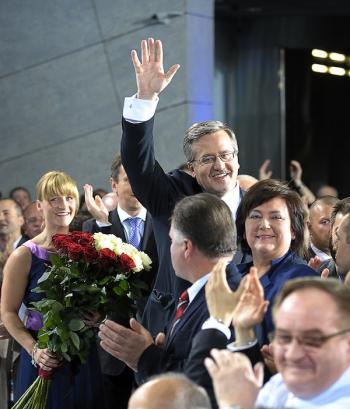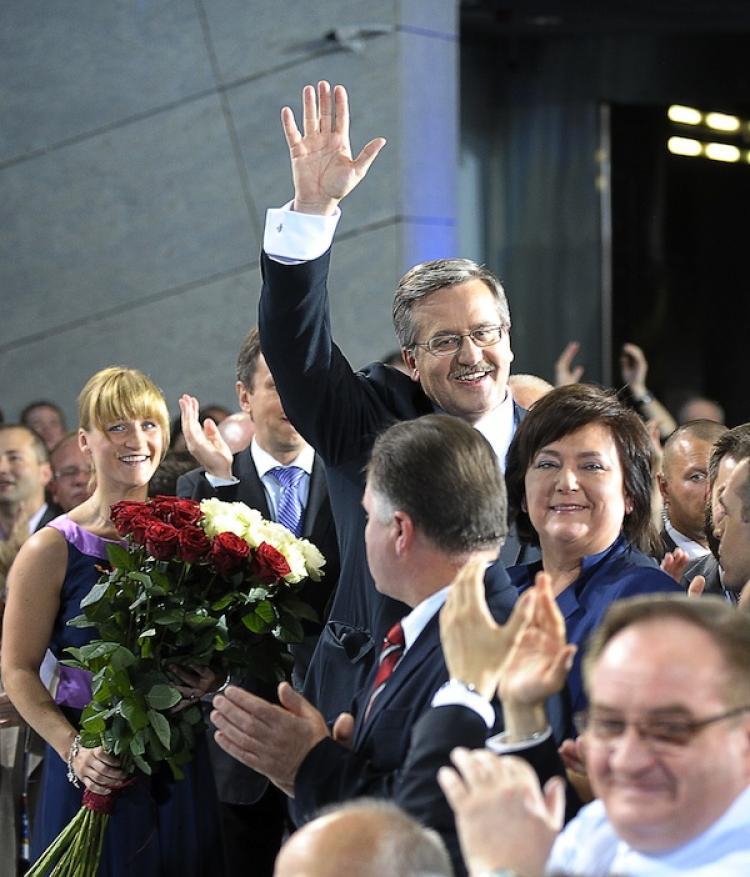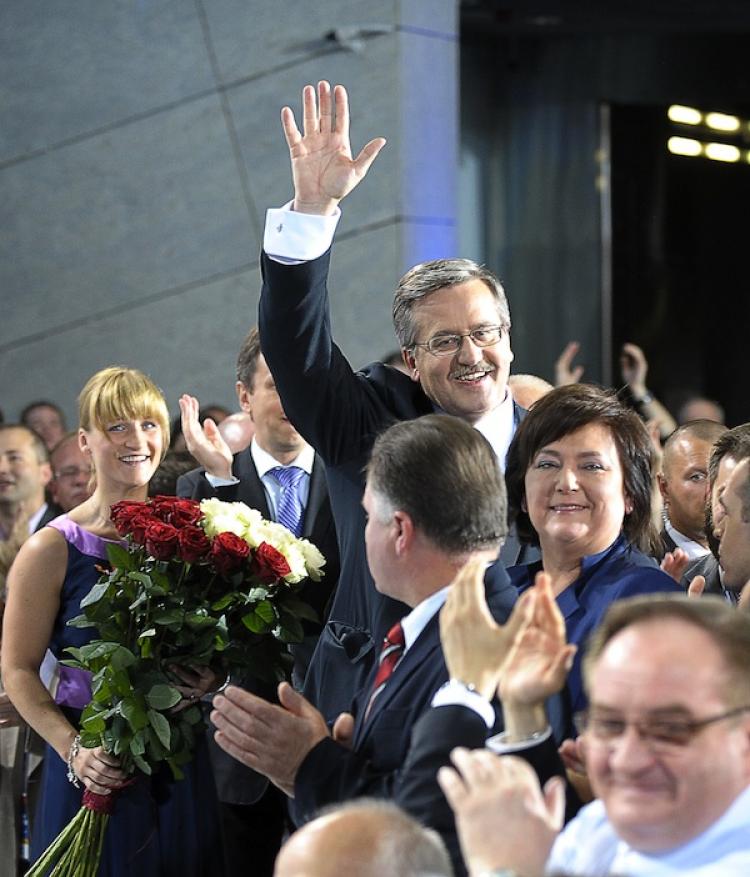WARSAW, Poland—One of the more gripping presidential races in Poland’s relatively new democracy was a nail-biter to the finish. The moment the polls closed at 8 p.m. local time, the election-day silence was lifted and national media reported exit poll results giving Bronislaw Komorowski a narrow victory.
The two biggest and most widely cited polling companies, SMG KRC and TNS OBOP, both put Komorowski ahead of Jaroslaw Kaczynski with 51.8-48.2 percent, and 53.1-46.9 percent respectively.
The camps were already celebrating and conceding defeat.
Then with about half of the ballots officially counted, the results flip-flopped. The tension mounted. But by the end of the night, with 95 percent of the ballots tallied, Komorowski was declared the victor.
The election was held in the aftermath of a tragic and still not fully explained airplane crash in Smolensk, Russia, which killed the president of Poland Lech Kaczynski, along with numerous other top government officials.
The runoff race was between Jaroslaw Kaczynski, the late president’s twin brother, and the former parliamentary speaker who became acting president after the accident, Komorowski. A faceoff between the two was triggered when the first round of elections in June did not produce a winner with more than 50 percent of the vote.
The contest galvanized the nation like few others since Poland held its first free presidential elections in 1990, after communism was overthrown in 1989.
“I would like to congratulate Bronislaw Komorowski on his victory, but most of all, I would like to thank all those who supported my candidacy,” said Jaroslaw Kaczynski at a rally of his supporters at the Hotel Europejski shortly after the preliminary results were announced.
He also paid his respects to his deceased brother and other victims of the Smolensk tragedy, adding that it is imperative that the circumstances surrounding their deaths be explained.
“We must find an answer in a moral, political, and legal context. Let us not forget the victims.”
The president elect mentioned that hard work awaits him and his camp in order to overcome the divisions that such a close race have revealed.
“A great deal of work awaits us so as to ensure that the divisions do not impede our cooperation, so as not to let them be an obstacle to building national accord.
“To refer to the beautiful traditions of the Solidarity movement, and I say this not just in context of this campaign, because we have always believed in this and we believe that this continues to be true, namely that there is no freedom without solidarity and no solidarity without freedom,” said Komorowski.
The runner up, Kaczynski, also quoted one of Poland’s greatest historical statesmen, Marshall Joseph Pilsudzki in reference to Poland’s upcoming parliamentary elections, due to take place next year.
“In order to be victorious, we must remember Joseph Pilsudzki’s maxim: ‘To win, but rest on one’s laurels, is a form of defeat. To be defeated, but not to give up, that is victory.’”
The two biggest and most widely cited polling companies, SMG KRC and TNS OBOP, both put Komorowski ahead of Jaroslaw Kaczynski with 51.8-48.2 percent, and 53.1-46.9 percent respectively.
The camps were already celebrating and conceding defeat.
Then with about half of the ballots officially counted, the results flip-flopped. The tension mounted. But by the end of the night, with 95 percent of the ballots tallied, Komorowski was declared the victor.
The election was held in the aftermath of a tragic and still not fully explained airplane crash in Smolensk, Russia, which killed the president of Poland Lech Kaczynski, along with numerous other top government officials.
The runoff race was between Jaroslaw Kaczynski, the late president’s twin brother, and the former parliamentary speaker who became acting president after the accident, Komorowski. A faceoff between the two was triggered when the first round of elections in June did not produce a winner with more than 50 percent of the vote.
The contest galvanized the nation like few others since Poland held its first free presidential elections in 1990, after communism was overthrown in 1989.
“I would like to congratulate Bronislaw Komorowski on his victory, but most of all, I would like to thank all those who supported my candidacy,” said Jaroslaw Kaczynski at a rally of his supporters at the Hotel Europejski shortly after the preliminary results were announced.
He also paid his respects to his deceased brother and other victims of the Smolensk tragedy, adding that it is imperative that the circumstances surrounding their deaths be explained.
“We must find an answer in a moral, political, and legal context. Let us not forget the victims.”
The president elect mentioned that hard work awaits him and his camp in order to overcome the divisions that such a close race have revealed.
“A great deal of work awaits us so as to ensure that the divisions do not impede our cooperation, so as not to let them be an obstacle to building national accord.
“To refer to the beautiful traditions of the Solidarity movement, and I say this not just in context of this campaign, because we have always believed in this and we believe that this continues to be true, namely that there is no freedom without solidarity and no solidarity without freedom,” said Komorowski.
The runner up, Kaczynski, also quoted one of Poland’s greatest historical statesmen, Marshall Joseph Pilsudzki in reference to Poland’s upcoming parliamentary elections, due to take place next year.
“In order to be victorious, we must remember Joseph Pilsudzki’s maxim: ‘To win, but rest on one’s laurels, is a form of defeat. To be defeated, but not to give up, that is victory.’”







